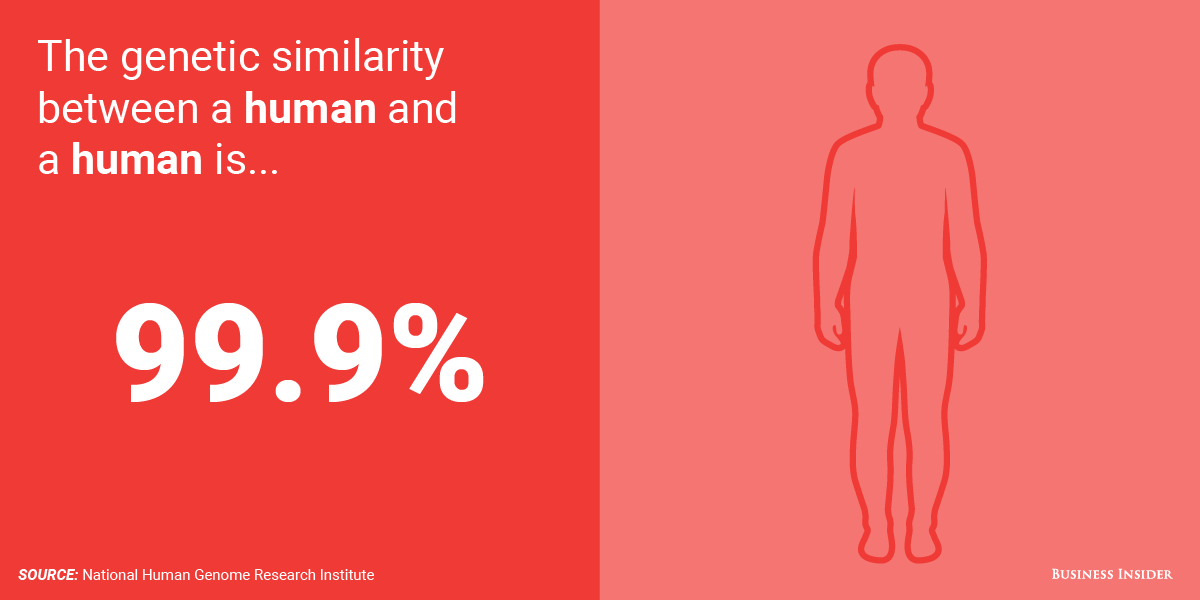On a dna level all humans are about 99 9 identical the 0 01 difference could explain what causes diseases and how to prevent them

On a DNA level, all humans are about 99.9% identical. The 0.01% difference could explain what causes diseases and how to prevent them.

Human beings are fascinating creatures, with each individual possessing a unique set of qualities and traits that make them who they are. However, despite these differences, we are astonishingly similar on a fundamental level. On a DNA level, all humans share an astounding 99.9% similarity. It is this minuscule 0.01% difference that holds vital clues to understanding the causes of diseases and how we can prevent them.
Understanding this concept requires delving into the world of genetics and genomics. Genetics is the study of specific genes and their hereditary characteristics, whereas genomics analyzes an individual’s entire genetic makeup, including all their genes and the non-coding DNA. Genomics provides a more comprehensive overview of an individual’s genetic profile and offers valuable insights into the underlying causes of diseases.
The 99.9% genetic similarity between humans is truly remarkable when compared to other species. For instance, we share about 98.7% of our DNA with chimpanzees, our closest living relatives. This small genetic difference, which amounts to just over 1%, underscores the extraordinary genetic overlap between species, reinforcing our shared ancestry.

However, that remaining 0.01% of genetic variation among humans contains the secrets to understanding diseases. These genetic differences can influence how our bodies respond to certain environmental factors, medications, and overall health. Some inherited gene variants increase the risk of developing certain diseases, providing invaluable knowledge for disease prevention and management.
By identifying these variations, scientists can pinpoint the specific genes associated with diseases, providing a basis for targeted research and medical interventions. This understanding allows for precision medicine, tailoring treatments to an individual’s genetic profile to maximize effectiveness and minimize side effects. Through genomics, medical professionals gain a deeper understanding of diseases, allowing for personalized prevention strategies and more efficient treatment options.
Additionally, genomics research plays a pivotal role in identifying genetic factors that contribute to diseases and disorders. By studying large populations, researchers can link specific genetic variations to certain conditions. This information enables the development of genetic tests to identify individuals at higher risk of developing certain diseases. Armed with this knowledge, proactive steps can be taken to prevent the onset of these diseases or detect them at an early stage when treatment is most effective.
The field of genomics has already made significant strides in improving healthcare outcomes for individuals and populations alike. From identifying genetic predispositions to chronic diseases like diabetes and cancer, to unlocking the mysteries of rare genetic disorders, genomics has revolutionized our understanding of human health and disease.
In conclusion, despite our apparent individuality, humans share a remarkable 99.9% genetic similarity on a DNA level. Nevertheless, it is the remaining 0.01% genetic difference that holds invaluable information for understanding the causes of diseases and their prevention. Through the study of genomics, scientists can unravel the complexities of human health, paving the way for personalized medicine, targeted prevention strategies, and enhanced healthcare outcomes for all.
Share
Related Posts
Quick Links
Legal Stuff

